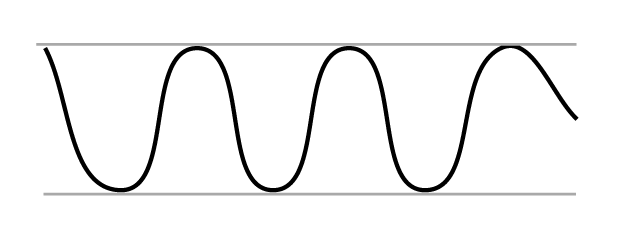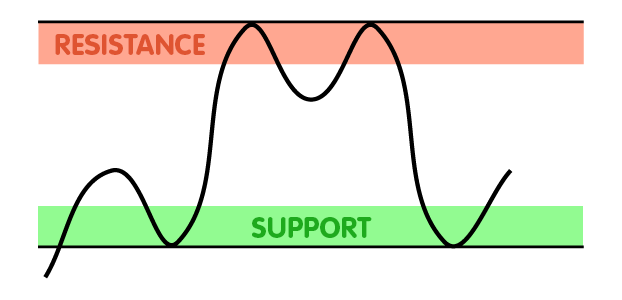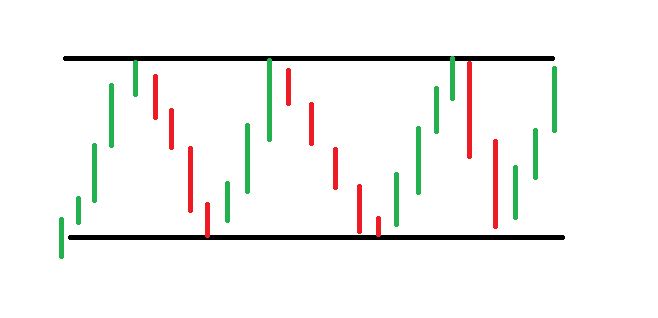A horizontal channel is a chart pattern formed from two parallel trend lines drawn above and below price representing resistance and support levels
Horizontal channels, also known as horizontal trend channels, are chart patterns used in technical analysis.
Like ascending and descending channels, horizontal channels are formed by drawing trend lines for both high and low prices on a chart.
The difference between the other two is that a horizontal channel is characterized as having equal highs and lows.

If prices remain reasonably constant overall for some period of time, the slope of both trend lines used in the chart will appear horizontal, and a horizontal trend channel will be formed.
Horizontal Channel as Support and Resistance
Like all trend channels, price trades between support and resistance.

When the price is between a support level and a resistance level, without being particularly near either of them, it does not signal anything about the future price.
If the price is falling towards support, it indicates that it will reverse and rise again.
If the price is rising towards resistance, it indicates that it will reverse and fall back again.
Many traders find it “cheap” near support and “expensive” near resistance.
Horizontal Channel Breakout
A break in prices outside of either trend line represents either a buy or a sell signal to traders.

If prices break above the upper resistance trend line, a buy signal is generated.
If prices break below the lower support trend line, a sell signal is generated.
Many traders believe that a horizontal trend channel doesn’t represent a horizontal trend as such, but merely a temporary interruption in a prevailing trend in either direction.
Other traders believe that a horizontal channel represents a “calm before the storm” of a major trend reversal.
Because of this ambiguity, horizontal channels should only be used in conjunction with other technical analysis tools.
If this article seems useful to your then please click the like button below. You can also share your valuable feedback or ask questions in the below comment section. Also, subscribe to our newsletter for trading-related updates.







